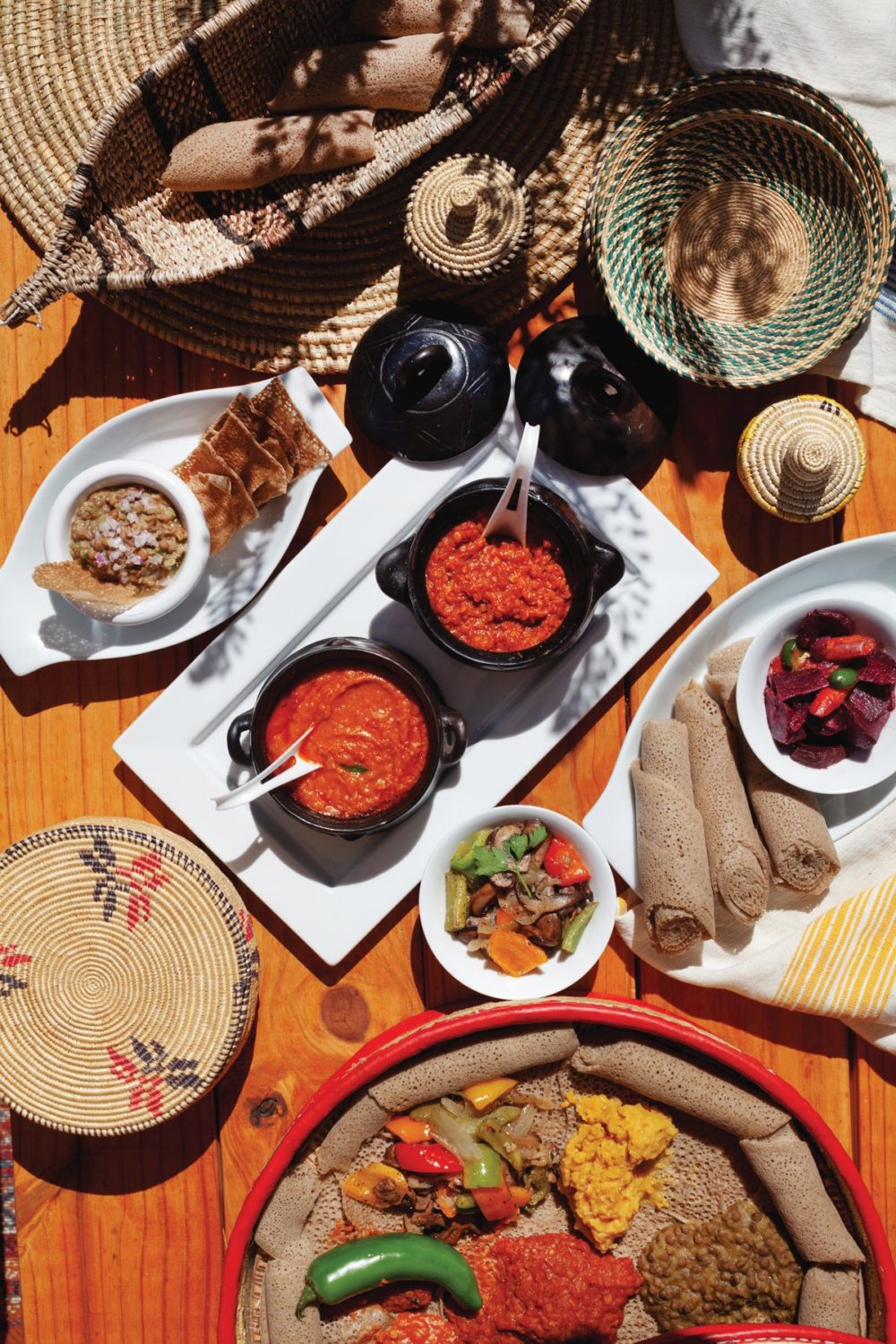
Climate Consciousness and Community Connection
Story by Anna Zigmond
Photography by Jennifer Olson
Meals in Ethiopia are just as much about community as they are cuisine, a dinner shared together between family, friends and neighbors. Forget individual place settings or the idea of leftovers and imagine, instead, a large tray with portions served for all to share. Gathering around a single plate, diners catch up on life and resolve issues over a cup of coffee and a piece of injera. This is a glimpse of mealtime in Ethiopia, the heart of Ebony in San Luis Obispo.
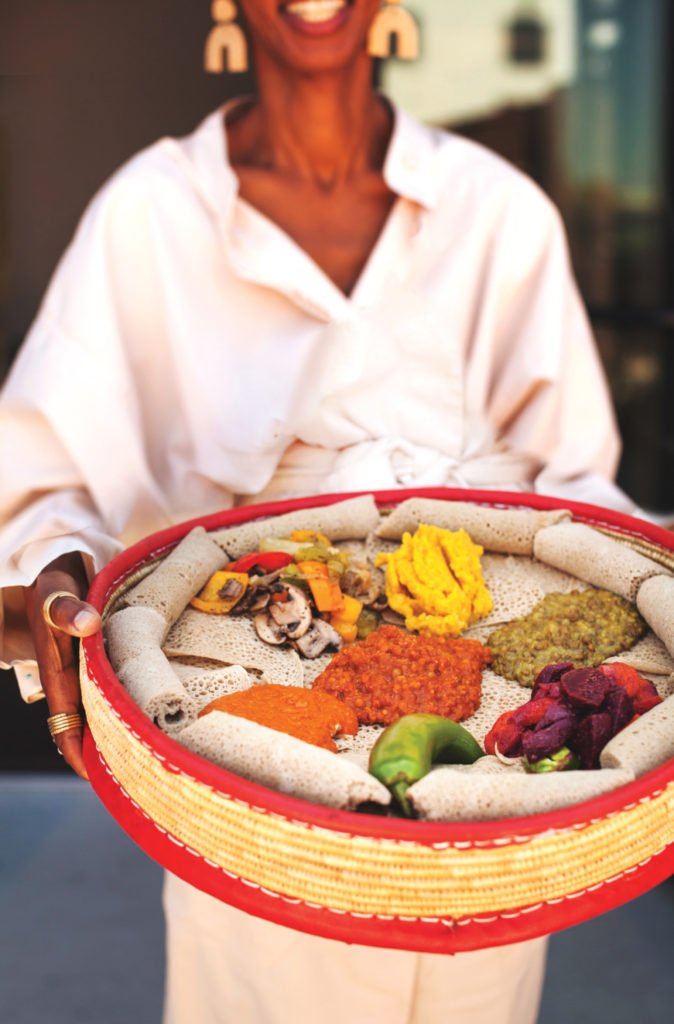
This type of collective convening has slowly faded from America’s version of dinner. As we have shifted to an experience that revolves more around alone time, eating on the go and neglecting the rituals of togetherness at the table, we forfeit time for connection to both the food we consume and those we hold dear. This void was felt deeply by Feben Teffera, one of Ebony’s partners and founders, when she moved to San Luis Obispo after living in New York and previously, her home country of Ethiopia.
“I had been living in the States for 30-something years and didn’t fully understand the importance, the vitality really, of a community until I wanted to have a child,” she says. “Then, I decided to build my own (community).”
Taking what she knew and where she was from, Feben began hosting dinners in her backyard, cooking up delicious Ethiopian dishes for her neighbors. It’s no surprise that her contributions and generosity were met with excitement and a hunger for more. In the years that followed, different iterations of Ebony emerged; from pop-ups to the involvement of her aunts, chefs Helen Abraha and Martha Taezaz. This eventually solidified the reality of Ebony as a food business. Energized by the response from those around her and the rush of connection she began to feel, Feben knew Ebony was what San Luis Obispo and she, herself, had been missing.
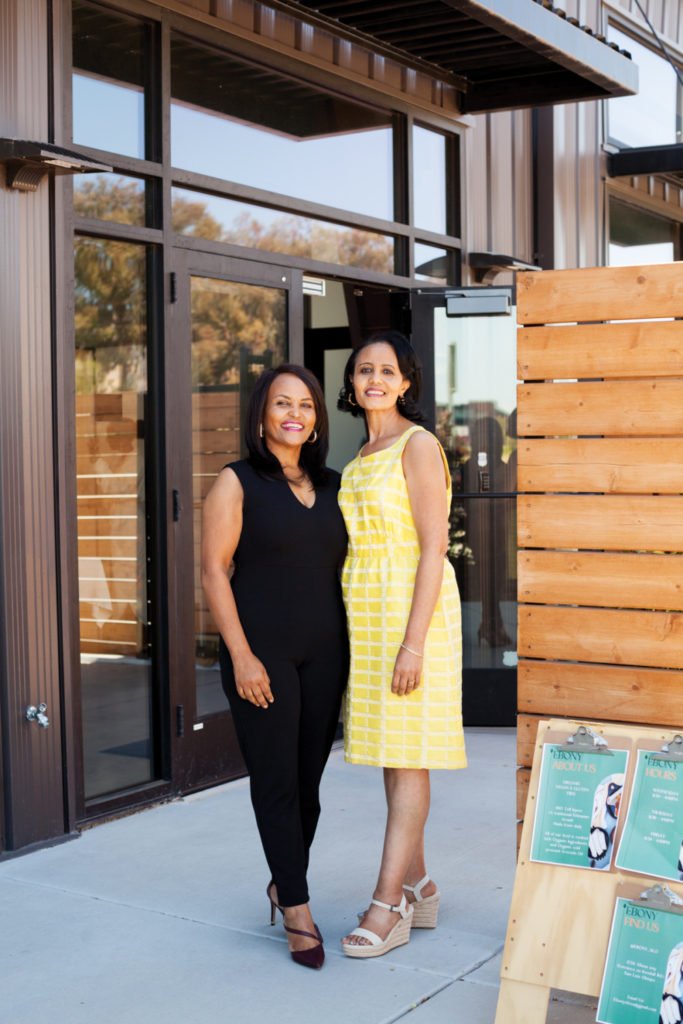

“We purposefully set up Ebony in a way that facilitates community. My priority was to create a high-energy space where people could come in and leave feeling great,” says Feben. Once Ebony secured outdoor space, they brought in a long single table typical of Ethiopian dining, along with traditional Ethiopian coffee and jazz music. Not long after these additions, Feben began witnessing customers taking the initiative to educate newcomers on the menu and stick around for longer conversations.
This camaraderie-conscious goal at Ebony is a pure reflection of Ethiopian culture. There is no better example of this spirit than the Ethiopian phrase እንብላ (inibla), translating in English to “let’s eat.” The word serves as an open invitation to share the food in front of you with others, no matter whose food arrives first, if you’re on the bus or seated at a restaurant. Feben says it’s a social etiquette every Ethiopian understands. The beauty of this cultural phrase is that it prioritizes the consideration of others, whether the invitation is declined or accepted. Announcing “let’s eat!” opens the possibility of engaging in conversation with a stranger and making a meaningful connection, a need that is hardwired in humans.
Ebony created an authentic Ethiopian menu, serving dishes based on what’s in season. Staples like Shiro Wot, the bestselling spicy Misir Wot lentil and seasonal veggies sourced from co-ops and farmers’ markets feed both body and soul. Feben’s steadfast belief that food is our medicine led her to a standard of using only the highest-quality and freshest ingredients. Every item Ebony offers is guaranteed to be organic, gluten free and prepared with the earth in mind. “I have this vivid image growing up of eggshells in the trash bin,” recollects Feben. “This is the only thing we would throw away and then the shells would be repurposed in fertilizer.”
In Ethiopia, the entire food process happens among neighbors, so there is no room for detachment. Waste is a foreign concept. Every single part of the animal is used. Feben recalls that still today when she’s in Ethiopia, friends and family view going to the store to pick up food as questionable. “Everyone knows someone who makes something you’d need,” she says. “So, you end up cooking, collecting everything yourself with the support of those around you.”
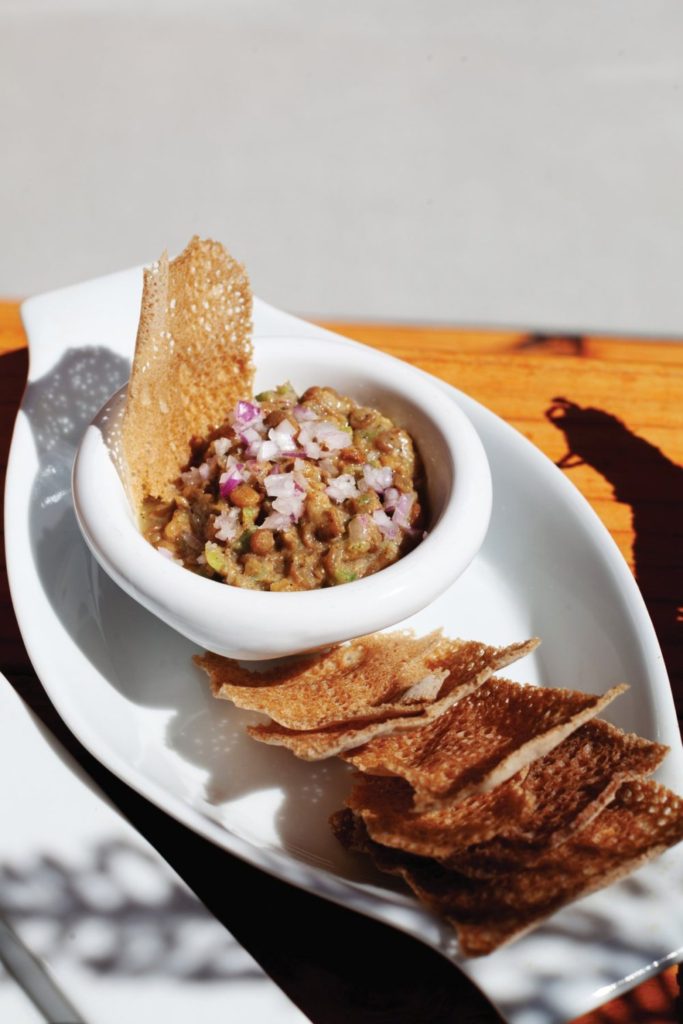
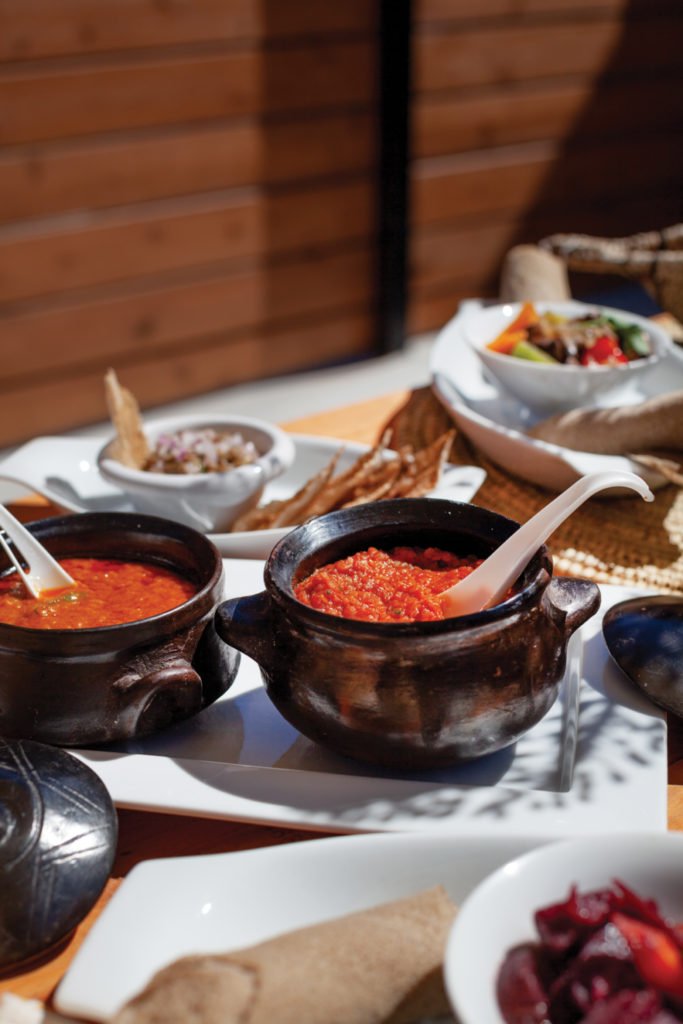
This reliance on the group is intertwined throughout the process of making mealtime a reality, stemming from both practicality and necessity. It’s a mindset that melds into Ebony, as Feben reflects, “We do not cut corners and we do not want to add more waste to the world.” Ebony makes their injera fresh every morning, uses compostable containers and gives a dollar back to people who bring in containers for refills.
Popular culture today has society trying to live a more conscious lifestyle, but this has been Ethiopia’s way forever. Places like Ebony serve as a window into this way of life and the benefits of an active, conscious community that has regard for neighbors and a reverence for the earth and animals that fuel us. “I don’t believe in cooking from a bad place or serving others from a bad energy because all of that goes into the food,” she says. “The only thing I want going into our food is love.”

